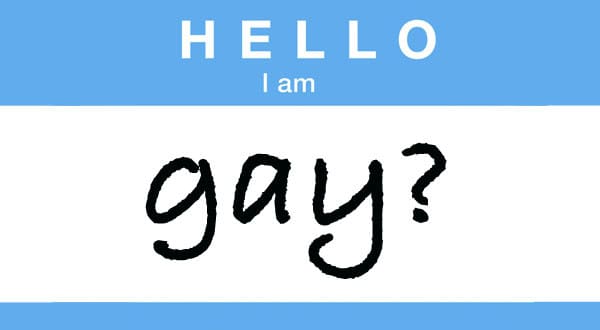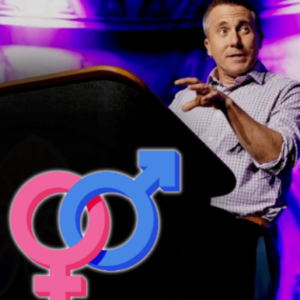
Please… Don’t Call Me Gay
Everywhere I turn, I am pressured to embrace the gay identity and make it “who I am.” With same-sex attractions being a part of my story, it seems that many people cannot see me in any other way. However, I ask you from the bottom of my heart: Please stop calling me gay.
The reason is bigger than me, or how I feel. It is because your words matter; they influence our social climate.
Say What?
When we refer to people as “gay” or “straight” (or even “homosexual” or “heterosexual”), here is what we are actually doing:
1. We make it the norm to see ourselves first and foremost according to the attractions we experience instead of according to our identity as beloved sons and daughters of God.
2. We deprive people from coming to realize that attractions experienced (which are not specifically chosen) are distinct from embraced identity (which is specifically chosen).
3. We deprive people from coming to realize that sexual attractions are part of our fluid human experience, and that the experience of any attraction does not necessarily mean that the person will experience that attraction for the rest of his or her life.
4. We deprive people from the opportunity to know that just because they might experience same-sex attractions, it does not mean they need to self-identify as “gay” in order to be honest with themselves. Many people who experience same-sex attractions want to be honest with themselves about the attractions they are experiencing, but for reasons of their own, do not want to embrace the gay identity label. We need to respect that.
5. We embed (falsely) the idea that it is our nature “to be gay,” when in reality it is our nature to love and to want to be loved, and we pursue those desires based on a number of factors including our sense of self-concept, our experience with prior relationships (sexual and non-sexual), and our degree of trust in others, among other factors.
6. We make chastity seem like a white-knuckled roller coaster through hell, because we overlook the question of identity itself. Thus, if a person perceives that “being gay” is “who they are,” then pursuing chastity will be seen to be going against their nature (what they perceive to be their nature).
What We Can Do
This can be mitigated if we stop referring to people by these types of identity labels. Here are three things we can focus on to help reach people’s hearts with this message:
- God calls all of us to lives of virtue.
- If virtue is modeled joyfully, people will be more likely to desire it.
- That joyful modeling needs to be done by none other than you and me.
This is so important because because once a heart desires virtue, it will come to desire Christ first and foremost, and that will reveal itself in one’s embraced identity.
And that will be the greatest witness of transformation.
In Closing… From My Heart to Yours
Please don’t call us “gay”
Because that’s not “who we are”
Yes, attractions we experience
But we are more, by far.
See, some labels are inadequate
Leaving less than truth reflected
But if we make it “who we are”
Then an identity we’ve selected.
So if we value honesty
With courage, the truth we’ll face:
Attractions experienced we do not choose
But identity we choose to embrace.
This matters greatly, please understand
Because a climate, we do form
By calling people “gays” and “straights”
We’ve created the new norm.
The norm by which self-concept
Is anchored strong in heart and mind
On ourselves above Creator
Reflecting falsehood of Design
So who are we really?
That’s the question of the hour.
We’re persons first, beloved by God
And finite, below His Power
So before you speak of “gays” and “straights”
Consider the words you use
To reflect that which is objectively true;
That attractions experienced we don’t choose, but embraced identity, we do.
For more on the topic of homosexuality and identity, read:
“Is ‘Gay’ just another adjective?”
“The Strange Notion of ‘Gay Celibacy’”
___________________
Bio
Hudson Byblow is a Catholic speaker, author, and consultant who lives in the Midwest where he has a career in education. He has presented at National and International conferences in the United States and Canada and also presents to clergy, schools, and parishes. Additionally, Hudson serves as a consultant to various Catholic agencies, speakers, and educators. His website is www.hudsonbyblow.com and he can be booked by emailing info@hudsonbyblow.com
